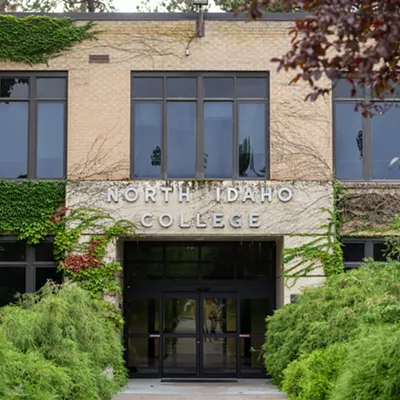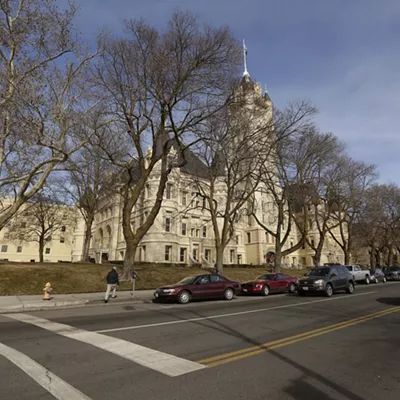For the past year, Washington State University and the WSU Coalition of Academic Student Employees have been bargaining for an initial contract. After securing about 80% of their demands, the union warned WSU that its members would go on strike by Wednesday, Jan. 17, if they hadn't reached an agreement on everything. WSU made significant progress on improving wages, but union members weren't satisfied — so, as promised, they went on strike. However, only three hours after ASEs hit the picket lines, the university and the union came to a tentative deal on the final few sticking points. ASEs working at Pullman campus can expect to make a minimum monthly salary of $2,318 — $2,485 at Spokane's campus —which increased from the current minimum salary of $1,670 a month. While the union didn't get all it asked for concerning health care, they did secure the right to continue negotiating with the university for improvements to 2024-25 and 2025-26 insurance plans. (COLTON RASANEN)
3,913 NEW HOMES
Washington is investing big in low-income housing, putting $274 million into affordable housing projects across the state that will create 3,443 new multifamily units, including for people with developmental disabilities, those who are homeless, and for seniors. The state is also putting $38.6 million into 470 new housing units that will be sold to low-income first-time homebuyers. About $12 million will be invested in the Spokane area. Spokane Neighborhood Action Partners received $1.8 million for Broadway Senior Housing, which will provide 60 units for seniors in Spokane Valley. Catholic Charities' housing arm received $5 million for River Family Haven, which will provide 107 units in Spokane, including 35 for families with children who are homeless upon entry. Alpha Supported Living Services received $1.85 million to build seven units for people with disabilities in Spokane County. On the homeownership side, Community Frameworks received $1.6 million to go toward 21 units in Spokane, while Habitat for Humanity Spokane received $1.7 million to go toward 24 units in Spokane County and Airway Heights. (SAMANTHA WOHLFEIL)
SIT DOWN
Should members of the public be allowed to stand up while other people are speaking during City Council meetings? Not according to the Spokane City Council, which banned standing as part of a sweeping slate of procedural rule changes passed Monday. (You can still stand up to use the bathroom.) The rules previously prohibited clapping or booing, so audience members would often stand up to show support for speakers, or turn their backs to show opposition. Council President Betsy Wilkerson, who introduced the rule changes, argued that standing can be distracting, disrespectful and block other audience members' views. A large number of regular public speakers turned up to oppose the change. Liz Moore, executive director of the Peace and Justice Action League of Spokane, described standing as a point of "political expression and bodily autonomy." The procedural changes passed Monday also moved open forum to the end of meetings and further cracked down on people using visual aids while testifying and filming meetings from non-designated areas. While most of the changes generated backlash, Council members did receive praise for increasing the number of people allowed to speak during open forum to 20, from 15. A number of audience members left their seats for One Last Stand as the Council voted 4-2 to pass the changes. (NATE SANFORD) ♦





















